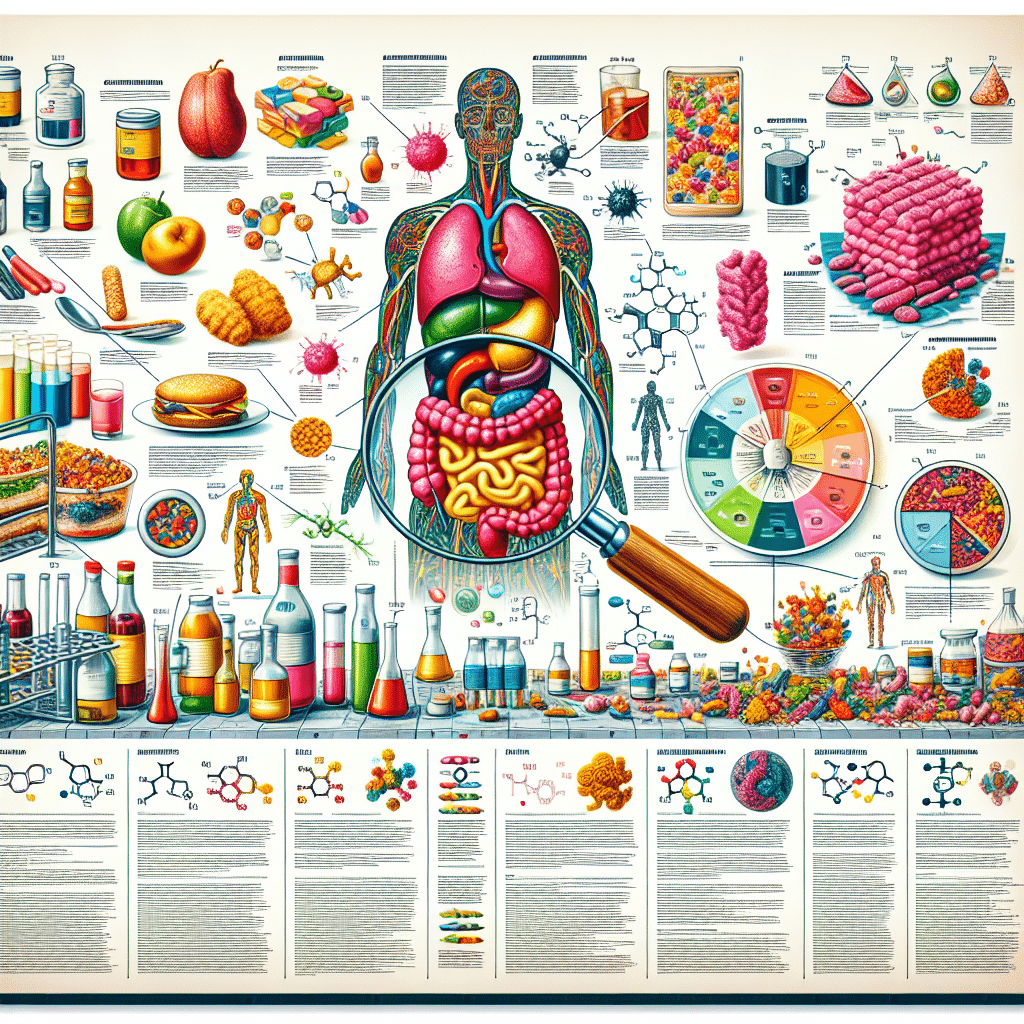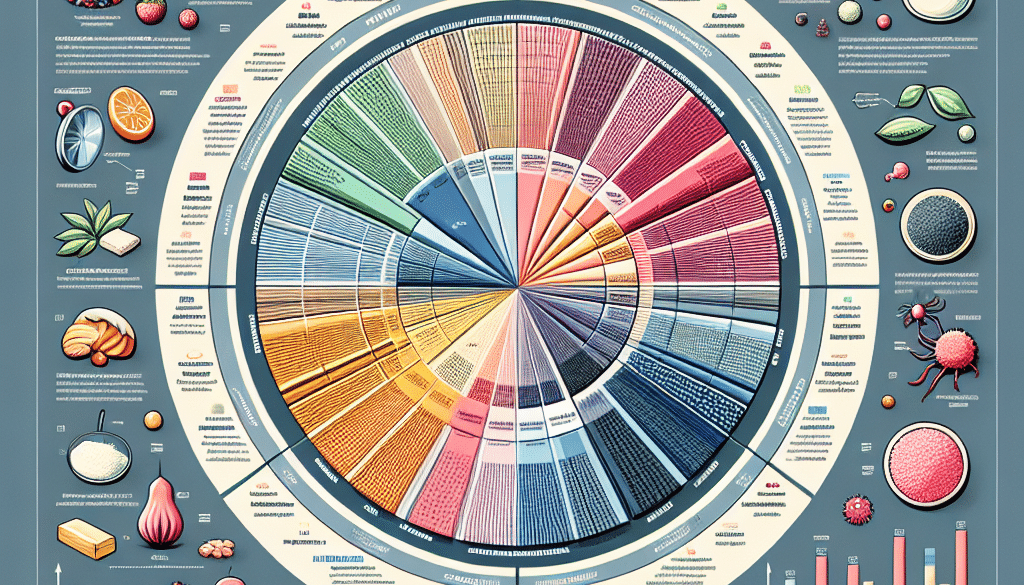Food Additives’ Impact: Comprehensive Analysis
-
Table of Contents
Food Additives’ Impact: A Comprehensive Analysis

Food additives have been a part of our diet for centuries, but their use has significantly increased with the advent of processed foods. While they serve various functions, such as improving taste, texture, and shelf-life, there is growing concern about their potential health impacts. This article provides a comprehensive analysis of food additives, their uses, benefits, and potential risks, supported by relevant examples, case studies, and statistics.
Understanding Food Additives
Food additives are substances added to food to maintain or improve safety, freshness, taste, texture, or appearance. There are thousands of additives used in the food industry, ranging from preservatives to artificial sweeteners, colorings, flavorings, and emulsifiers.
- Preservatives: Extend the shelf-life of foods by preventing microbial growth.
- Artificial Sweeteners: Provide sweetness without the added calories of sugar.
- Colorings: Enhance or restore the color of the food.
- Flavorings: Add or modify the flavor of food products.
- Emulsifiers: Help mix ingredients that typically do not combine well, such as oil and water.
The Benefits of Food Additives
Food additives offer several benefits that are often taken for granted:
- Preservation: Additives like nitrates and sulfites help prevent food spoilage, reducing food waste and the risk of foodborne illnesses.
- Improved Taste and Appearance: Additives can enhance the sensory qualities of food, making it more appealing and enjoyable to consume.
- Cost-Effectiveness: By extending shelf-life and improving crop yields, additives can help make food more affordable.
- Convenience: Additives enable the production of ready-to-eat and quick-preparation foods, suiting the fast-paced lifestyle of modern society.
Potential Health Risks of Food Additives
Despite their benefits, some food additives have been linked to adverse health effects. Here are a few examples:
- Artificial Sweeteners: Studies have suggested that artificial sweeteners may be associated with an increased risk of obesity, diabetes, and heart disease.
- Preservatives: Certain preservatives, such as butylated hydroxyanisole (BHA), have been identified as potential carcinogens.
- Colorings: Some artificial colorings have been linked to hyperactivity in children and may pose a risk of cancer.
It’s important to note that regulatory agencies like the FDA and EFSA assess the safety of food additives through rigorous testing and establish acceptable daily intake levels to protect consumers.
Case Studies and Statistics
Several case studies and research findings highlight the impact of food additives on health:
- A study published in the journal “Lancet” found that certain food dyes and the preservative sodium benzoate could increase hyperactivity in children.
- Research by the Center for Science in the Public Interest (CSPI) has shown that some common food dyes carry cancer risks.
- Statistics from the Environmental Working Group (EWG) indicate that the average American consumes about 14 pounds of food additives each year.
Regulation and Consumer Awareness
Regulatory bodies around the world have established guidelines and standards for the use of food additives. Consumers are also becoming more aware of the ingredients in their food and are seeking out products with fewer artificial additives.
Conclusion
Food additives play a crucial role in the modern food supply, but it’s essential to balance their benefits with potential health risks. Consumers should stay informed and make dietary choices that align with their health goals. Regulatory agencies must continue to monitor and reassess the safety of food additives as new research emerges.
ETchem’s Protein Products Recommendation
If you’re looking for high-quality protein products without unwanted additives, ETchem’s range of collagen products is an excellent choice. Their commitment to purity and quality ensures that you receive the best protein supplements for your health and wellness needs.
About ETChem:
ETChem, a reputable Chinese Collagen factory manufacturer and supplier, is renowned for producing, stocking, exporting, and delivering the highest quality collagens. They include marine collagen, fish collagen, bovine collagen, chicken collagen, type I collagen, type II collagen and type III collagen etc. Their offerings, characterized by a neutral taste, instant solubility attributes, cater to a diverse range of industries. They serve nutraceutical, pharmaceutical, cosmeceutical, veterinary, as well as food and beverage finished product distributors, traders, and manufacturers across Europe, USA, Canada, Australia, Thailand, Japan, Korea, Brazil, and Chile, among others.
ETChem specialization includes exporting and delivering tailor-made collagen powder and finished collagen nutritional supplements. Their extensive product range covers sectors like Food and Beverage, Sports Nutrition, Weight Management, Dietary Supplements, Health and Wellness Products, ensuring comprehensive solutions to meet all your protein needs.
As a trusted company by leading global food and beverage brands and Fortune 500 companies, ETChem reinforces China’s reputation in the global arena. For more information or to sample their products, please contact them and email karen(at)et-chem.com today.




